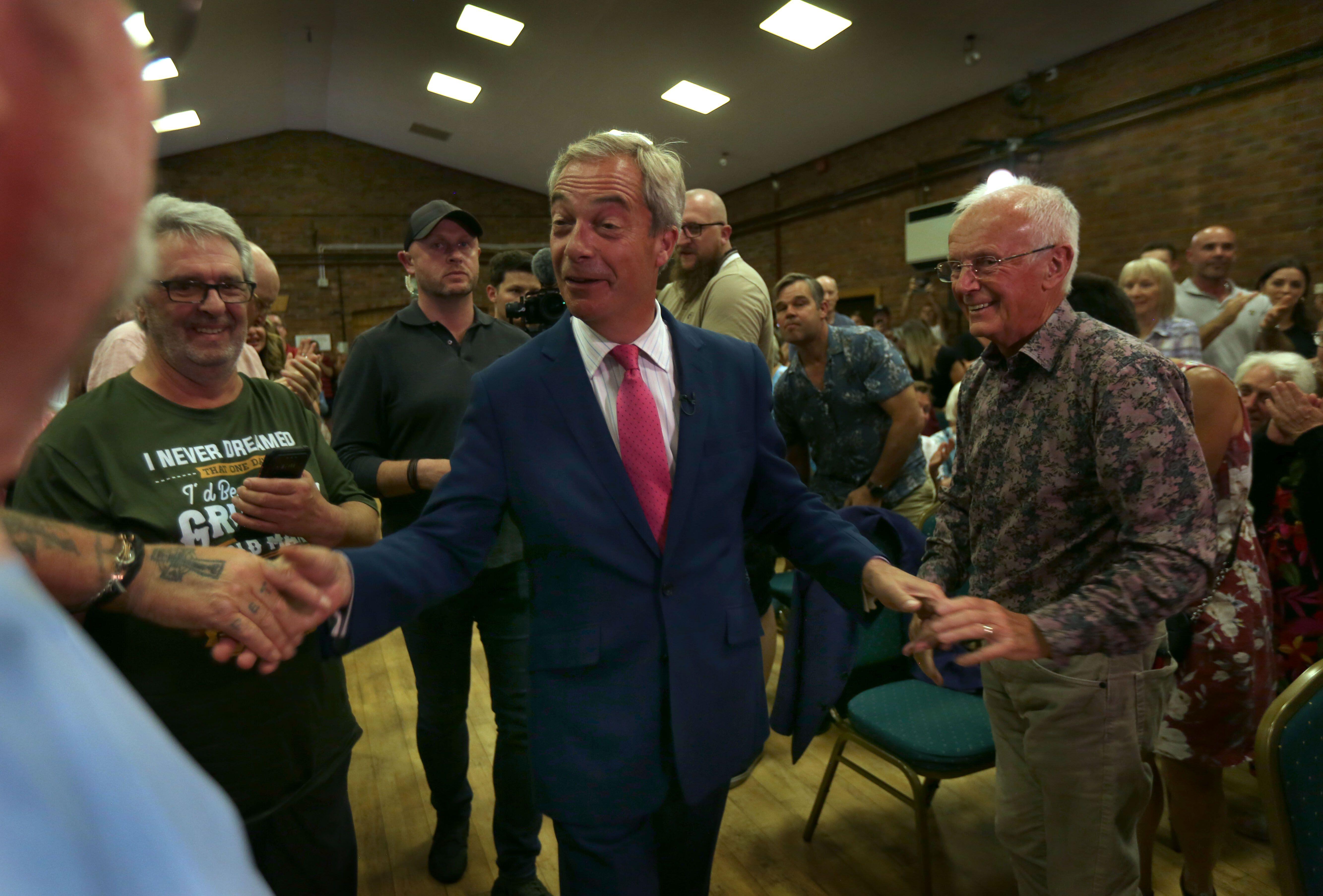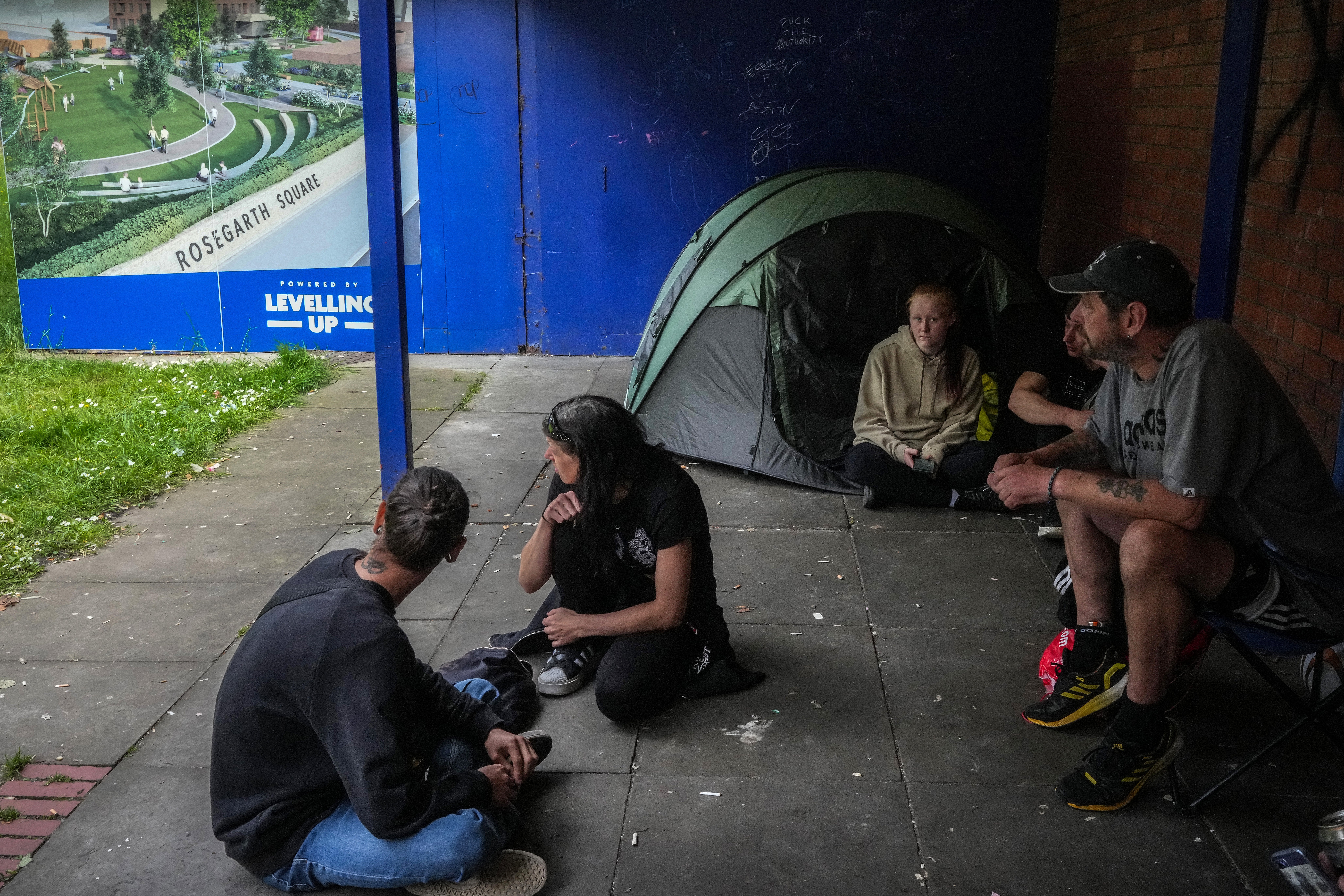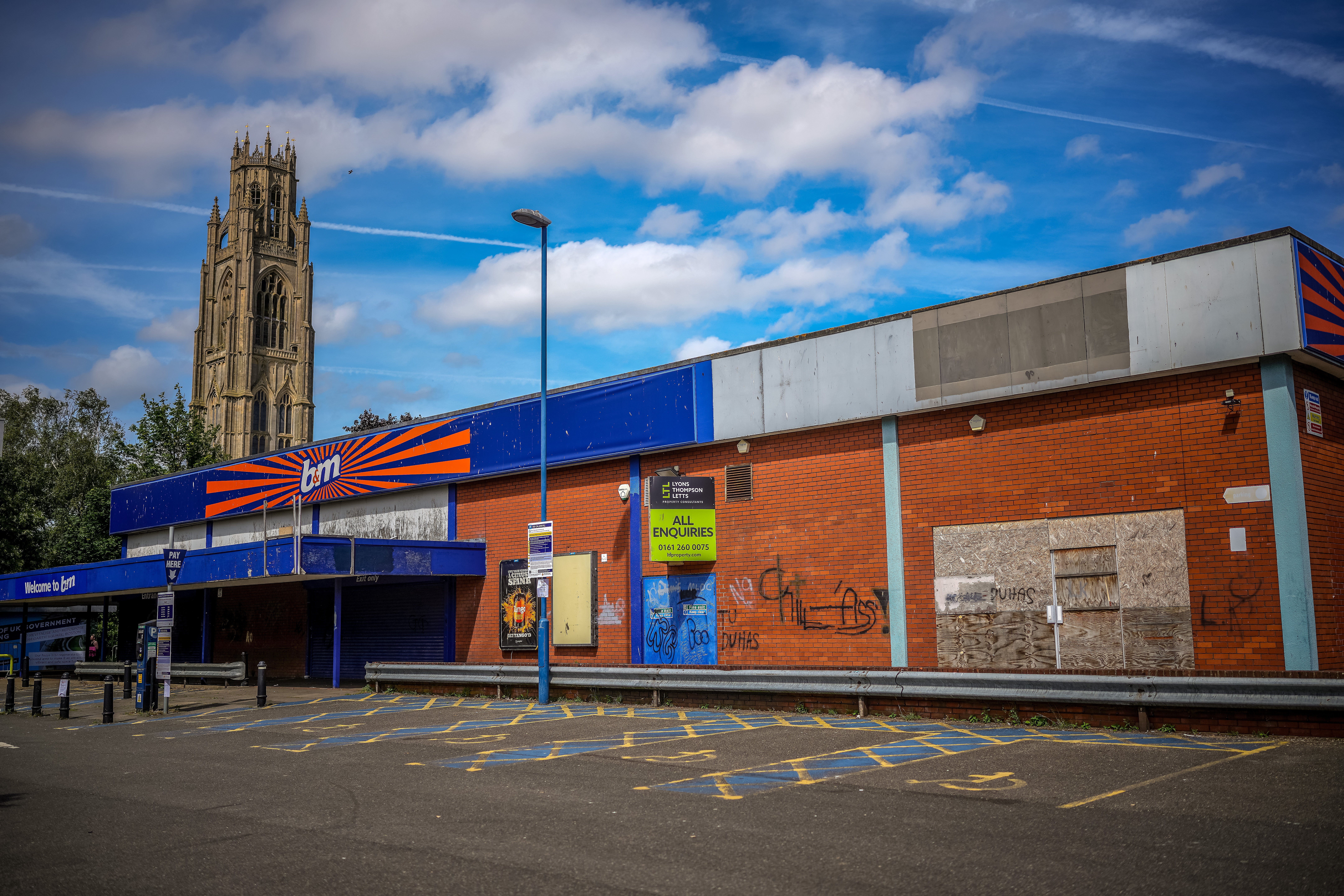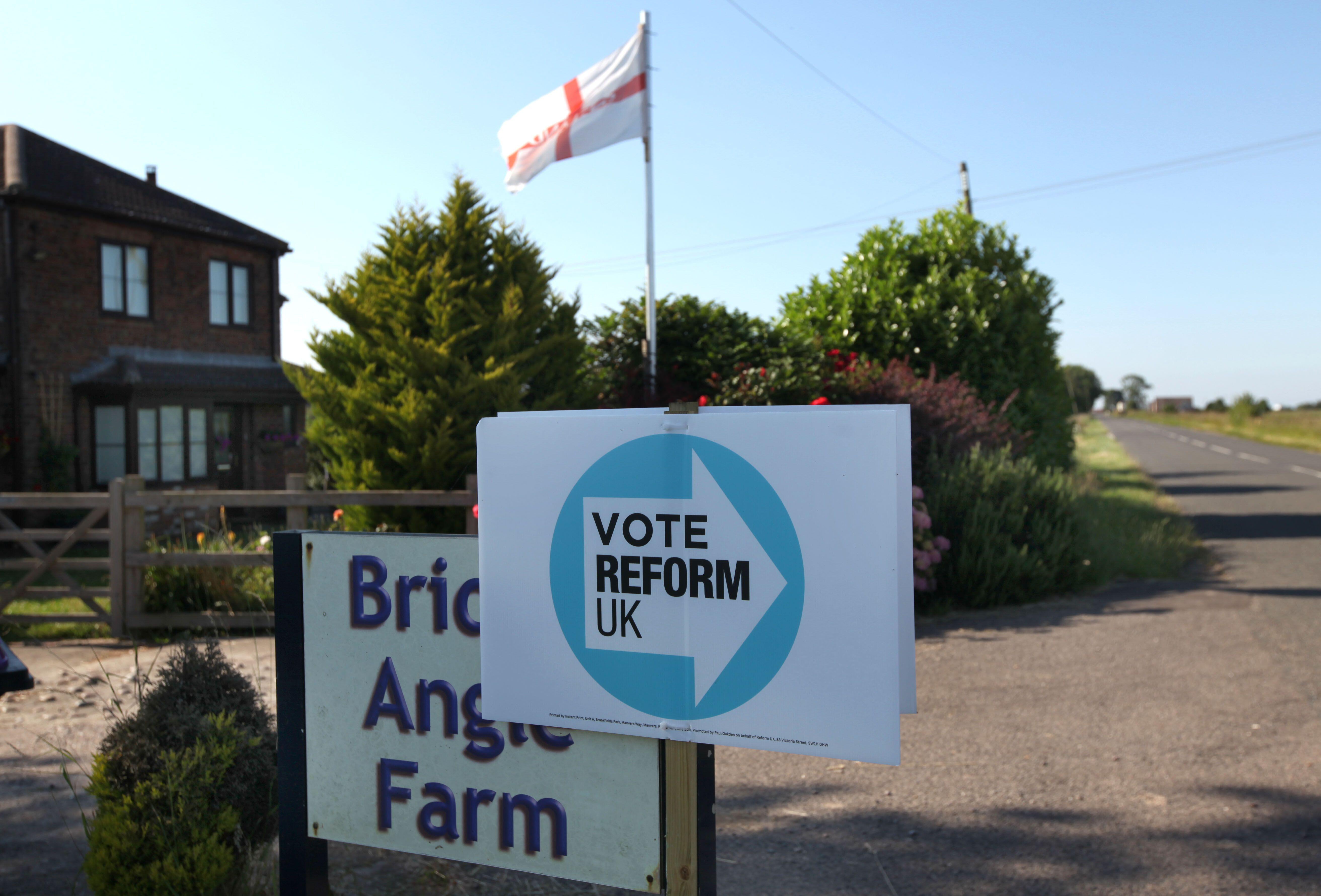How Nigel Farage took over my hometown – and why Keir Starmer should be worried
With the highest leave vote in the country, Boston and Skegness became known as Farageland, so it was no surprise to Zoe Beaty that it was where Reform’s Richard Tice won a seat. It is also why Labour needs to stop treating Farage like a joke


Almost exactly 20 years ago, on June 14, 2004, I sat in my mum’s living room, turned on the TV, and watched footage of my hometown, Boston, in Lincolnshire, burning. The previous day, more than 100 people had rioted in the town, reports said. Hours after England crashed out of the Euros, tightening racial tension over immigration in the market town snapped, and erupted. Police cars were set on fire. Nearly every shop window was smashed. At school the next day we tried to grasp what happened and deduce which of us now had family members on the run from the law.
The riots were a response to a rumour, allegedly spread by the BNP, that the council was banning the flying of English flags during the football tournament. It was entirely false but that didn’t matter, and soon enough national news reports on Boston showed a portrait of a town alight with anger, a poster child of English nationalism, growing racism, discomfort and unrest.
In the years that followed I watched my home town attract more headlines – for high rates of teenage pregnancy, as the murder capital of the UK, the least integrated town in the country, the most obese and one of the poorest. By the time Brexit came around over a decade later, Boston’s migrant population – who almost exclusively do necessary “back-breaking” field and factory work in Lincolnshire’s vast food and agriculture industry – had grown by more than 460 per cent and the borough was synonymous with anti-immigration rhetoric. It resulted in the highest leave vote in the country in the referendum: just over 75 per cent, with a turnout of 74.2 per cent. Boston and neighbouring Skegness became known as Farageland.

Then came this week’s headline. While the majority of the country was swept up in Labour’s landslide victory, in Thursday’s general election Richard Tice, chairman of Reform UK, won one of five seats for the party in the constituency of Boston and Skegness, ending a 27-year Conservative hold.
A shock? Yes, that Matt Warman, who served as MP in the constituency for nine years, was ousted from one of the very safest Conservative seats in the UK. But the fact that it was Reform who were responsible, less so. In fact, in the four hours it took me to drive home yesterday, I had several messages from friends and family saying exactly that. “It’s no surprise,” was the gist of most of our post-match analysis; if you lived there, you could see it coming.
For years, fringe right-wing parties have often been treated as a bit of a joke by mainstream politicians. At the launch of Labour’s manifesto last month, Keir Starmer declared he was bidding to run the UK, “not a circus”. “If you want politics as pantomime, I hear Clacton is nice this time of year,” he ribbed.
Despite obvious warnings – the substantial rise in race hate crime post-Brexit, the growing presence of the far right in Europe; Marine Le Pen’s fandom for UKIP – Farage and the rest of his cast were rarely treated as a real political threat until the very last minute. Now it’s beginning to look like the joke’s firmly on Westminster.
According to analysis, despite winning just five seats in the election, Reform received more than four million votes: that’s 600,000 more than the Liberal Democrats, who took 71 seats in total. Without the first past the post system – which Farage immediately denigrated upon winning his first election, on his eighth try – Reform would now be the third biggest party in the UK, after winning almost 15 per cent of the popular vote.
The party came second in 103 seats, despite only being reformed in 2021, and have found voters in all age groups – 8 per cent of those aged 18 to 24 picked Reform on the ballot; 9 per cent of those aged 25 to 34. “We’re coming for Labour,” Farage told his audience in Clacton, Essex, the seaside town he now represents in parliament.
Like everyone else from Boston and Skegness, I’m well aware by now that these threats aren’t just part of Farage’s circus show. In fact, it looked shockingly easy, first for Farage during the Brexit campaign, and now Tice, very recently, to pull large swathes of these towns further over to their agenda.
A recent trip back to visit my family provided a small snapshot of why. On a walk around the town centre I ended up by the local police station, adjacent to a now-empty B&M store in the shadow of the Stump, Boston’s famously foreboding church. The walls of the abandoned building were wrapped in bright, grossly optimistic adverts for the government’s Levelling Up fund, which promised £14.8m investment for the square; below them were several dank mattresses and threadbare tents where rough sleepers dwell.

The thing is, Boston is lacking in much more significant things than a nice-looking new square. And for years – since way back in 2004, well before Brexit and for all the years after – promises made by successive governments have left gaping holes where they’ve failed to materialise. Beyond the headlines, Boston is a complex case study of the effects of austerity, a growing population and what happens when there’s a profound lack of infrastructure to support it. Weak, or non-existent regulations on houses in multiple occupation (HMOs) and gangmasters – a person who oversees the work of manual labourers – early on left hefty dents; schools have long been extremely oversubscribed, and the local hospital, the Pilgrim, is stretched way beyond its capacity.
Despite many locals’ insistence that leaving the EU was the right thing to do, Brexit hasn’t improved anything and has simply further harmed the area’s biggest economy, agriculture. Coupled with rising rents and a cost of living crisis, Boston’s high street, like many in the country, has been decimated. Crime in Boston is 50 per cent higher than in the rest of Lincolnshire.
It’s not easy living somewhere that feels unsafe. Farage set up shop – literally, in a former second-hand shop – in the town before the 2015 election. He saw that the fear and resentment that grows in environments like Boston presents an opportunity. An opportunity to weaponise already harmful prejudice for political gain and a personal agenda.
In his party’s latest incarnation as Reform, immigration has once again been the central campaigning issue, and racism and prejudice is even less cloaked (as revealed by Channel 4’s undercover investigation, which the party denounced as “election interference”). While Farage took to the podium yesterday giving his “100 per cent promise” to rid Reform of “bad apples” after the party had to suspend multiple candidates for racist and homophobic comments, in my mind, much of the racist rhetoric has simply been rebranded as “common sense”.
Reform also sold the election to Boston on the idea that it represents “real issues that affect real people, that don’t affect the metropolitan middle class, who aren’t in the real world” (apart from its two metropolitan upper-middle class leaders). And it’s this that we can’t afford to ignore: however cynical, a party that successfully engages a growing class of dangerously disillusioned people wields an awful lot of power. In the end, Reform helped Labour to win more than 400 seats, but the upstart’s solid performance in huge swathes of red wall seats means his warning to Sir Keir that it was now “going after Labour votes” should be heeded.

It seems quite mad to me that Boston – which wholeheartedly rejects the bourgeoisie, and where child poverty increased to 30 per cent last year – would choose a privately educated multimillionaire property developer who had never set foot in the area until mere weeks ago to represent them. Whether Tice and Reform can deliver plausible answers to big questions this small town needs is another thing entirely. I hear that Tice, from London, has “promised” to move to the area, which feels like a start (and something to hold him to).
But the result also says a lot about waning trust in (and apathy towards) mainstream politics. The last decade has left people feeling unseen in the fog of political scandal, one after another. And in four seats – and very nearly in 103 more across the country – neither Labour nor the Conservatives have done enough to rectify that.
While there were no riots and no one on the run this time, for Boston and Skegness the general election was certainly a protest. On a local Facebook group, with a thread of hundreds of people celebrating and debating the win, one ominous comment stands out. “From little acorns, mighty oak trees grow,” it says. On Thursday, the seed was planted.



Join our commenting forum
Join thought-provoking conversations, follow other Independent readers and see their replies
Comments